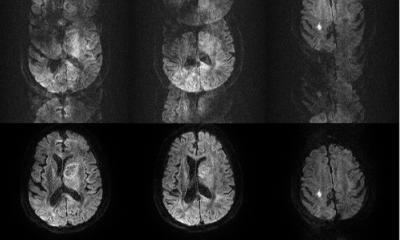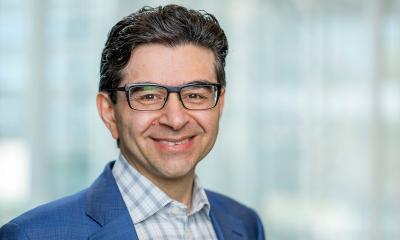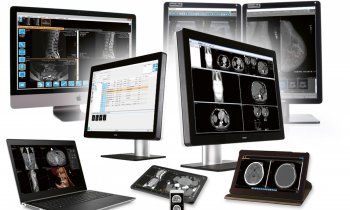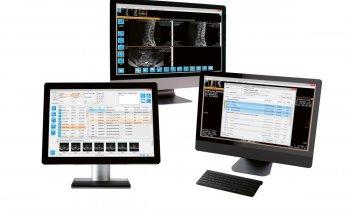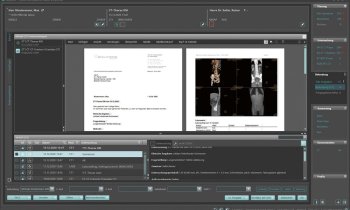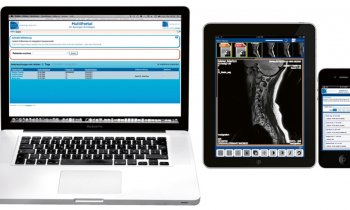Interview • AI & EHR
Savana goes data mining
Artificial intelligence (AI) has taken centre stage during the Medica Academy sessions. While talks focus on initiatives made in Germany, European Hospital took a look at Spain and spoke with Ignacio Hernández Medrano, a neurologist recently elected as one of the most influential people in healthcare (HC).
Interview: Mélisande Rouger
At just 34 years old, Medrano has already founded two flagship AI projects, one of which enables extraction of valuable data from clinical reports written in free speech: Savana. With a name that echoes fertile lands, the solution may prove very helpful when it comes to mining valuable clinical information.
What is Savana?
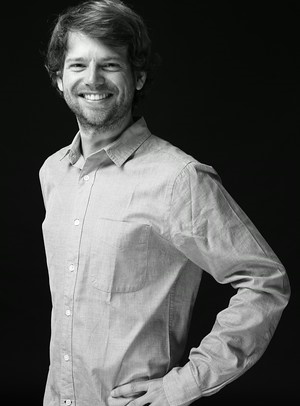
‘As doctors, we have been gathering information from our patients’ clinical records for many years. This information has great value, but until now it hasn’t really been exploited, because we write our reports in natural language, or free speech. We write in complex semantics and narratives, rather than in a structured way. For some years we have been using natural language and linguistics computational processing, so that computers can decode human language. That’s the technology used by Google, for instance. Savana is the first company that has been able to subspecialise this AI technology to convert free speech contained in clinical records in a database, and to mine this data.’
What inspired this business idea initially?
‘In our society, we have access to large databases all the time, whether for music, banking, etc. In healthcare, very large quantities of data are being generated, most of which are digital, however, we did not reuse it – which is possible with technology and a bit of organisation. So that’s what we did.’
Is Savana unique?
‘There are many innovative companies in Spain; social entrepreneurship is growing steadily. Technology is a great way to improve people’s lives. Savana handles very big amounts of medical information, which very few private or public projects do. We manage tens of millions of clinical episodes and this makes us very unique.‘
How is big data developing in Spain?
Just as e-banking is becoming banking, e-health is becoming health
Ignacio Hernández Medrano
‘Unlike Germany, the UK and the US, Spain did not pave the way for big data use. We need to get on board now and use big data in healthcare. Just as e-banking is becoming banking, e-health is becoming health. The Spanish healthcare system is very strong, but things may change within 10 years if we don’t realise that health is becoming digital.’
Are doctors or healthcare people resisting this?
‘Innovation means realising that you need to get it wrong three or four times before it works. This is very hard to accept in healthcare. Mistakes are badly tolerated, so it’s harder for innovation to go further in this sector. That’s why big data and digitisation have advanced in other areas, such as banking. Nevertheless, no human production generates as much data as a hospital. So big data has an important role to play in healthcare too; and it already does, at the level of drugs and diagnostic or therapeutic algorithms, which improve human capacities. It’s true that doctors tend to have a conservative attitude, especially regarding their role in society. But, when one realises that powerful algorithms that can improve diagnosis and treatment can be obtained through managing large amounts of data, then everything will fall into place, because patient care improves. If a machine gives what’s best to the patient, doctors will follow. And that’s not the future: that’s right now.’
Currently, how many hospitals use Savana?
‘We provide services to around 40 hospitals, so that would be a six million population.We definitely should have more by the end of the year. The more clinical information we have, the better it will be for everyone. Outside Spain, we have information from Chile, and contacts with the United Kingdom, the United States and Argentina, and we hope we will expand soon.’
Are you working on other projects?
‘Yes, I’m working with Mendelian, a UK based company, which has developed an online rare disease search engine, built with the aim of increasing diagnostic hit rates. I met the other people behind Mendelian while studying at the Singularity University. Rare diseases are complex and take a long time to be diagnosed. There’s very little knowledge around these diseases, and our tool offers to speed up the process. Rare diseases associated genes and their existing gene panels are algorithmically matched to phenotypes. Recently we’ve helped a kid with a rare disease to be diagnosed.’
What did you learn at the Singularity University?
Having an exponential approach means that we believe things will go much faster than we expect
Ignacio Hernández Medrano
‘Private companies founded the university eight years ago to promote the impact of positive technology. The school has an annual number of 80 people who all want to improve living conditions by using high impact technologies and a positive, exponential approach. Technology is changing the lives of many people. Having an exponential approach means that we believe things will go much faster than we expect. This way of thinking changed me; the future is much closer than what we believe. The future will come and it will be for the good; there will be associated problems, of course, but it will improve people’s lives.’
14.11.2017




